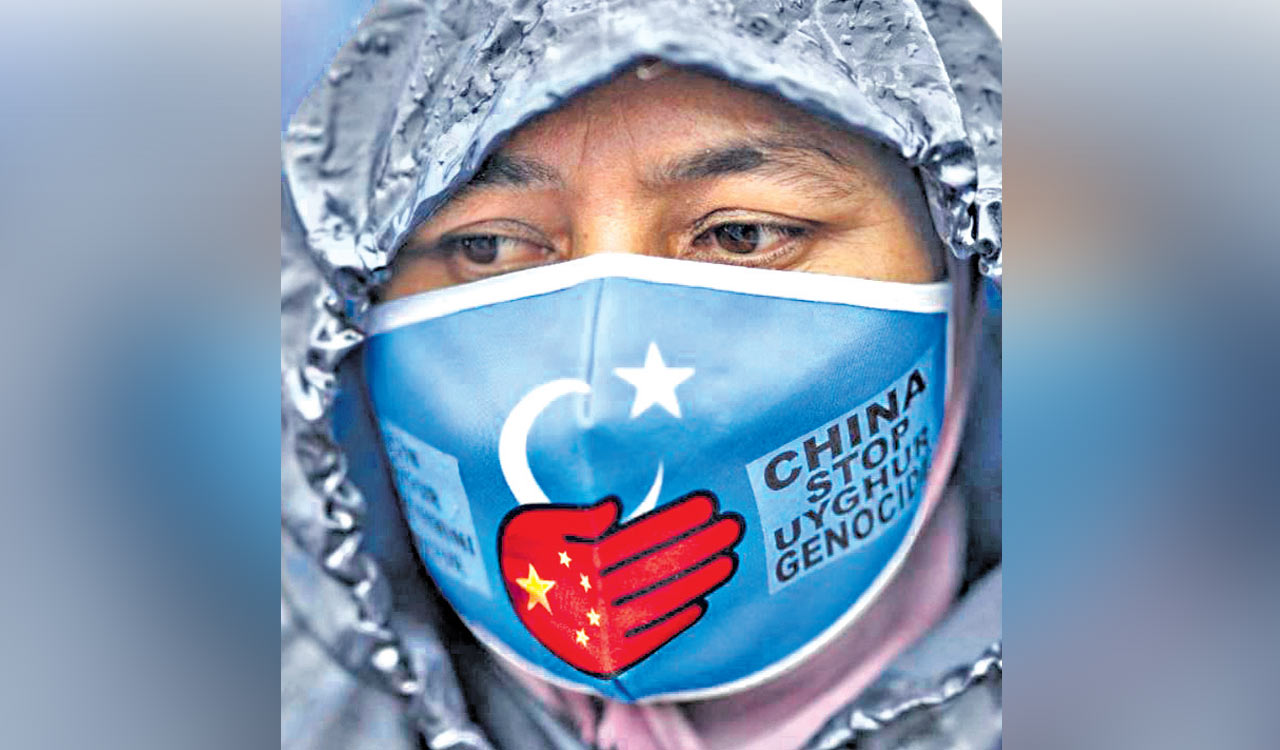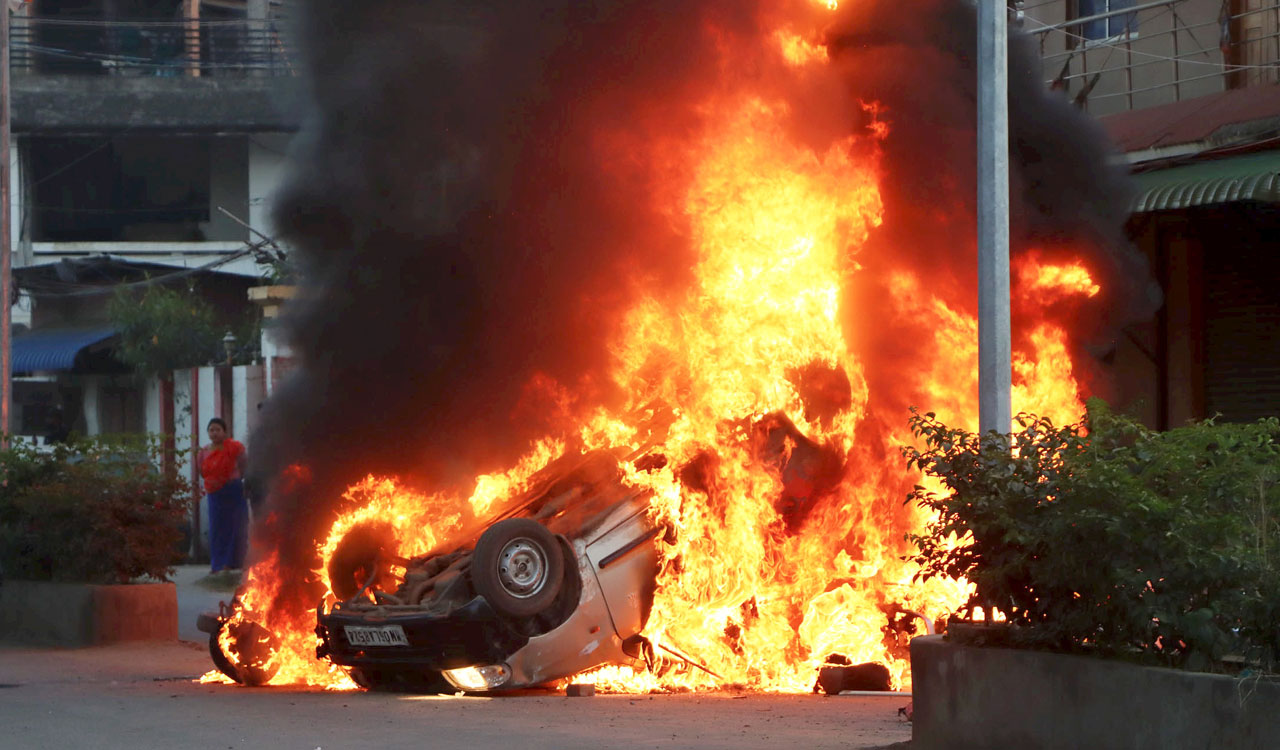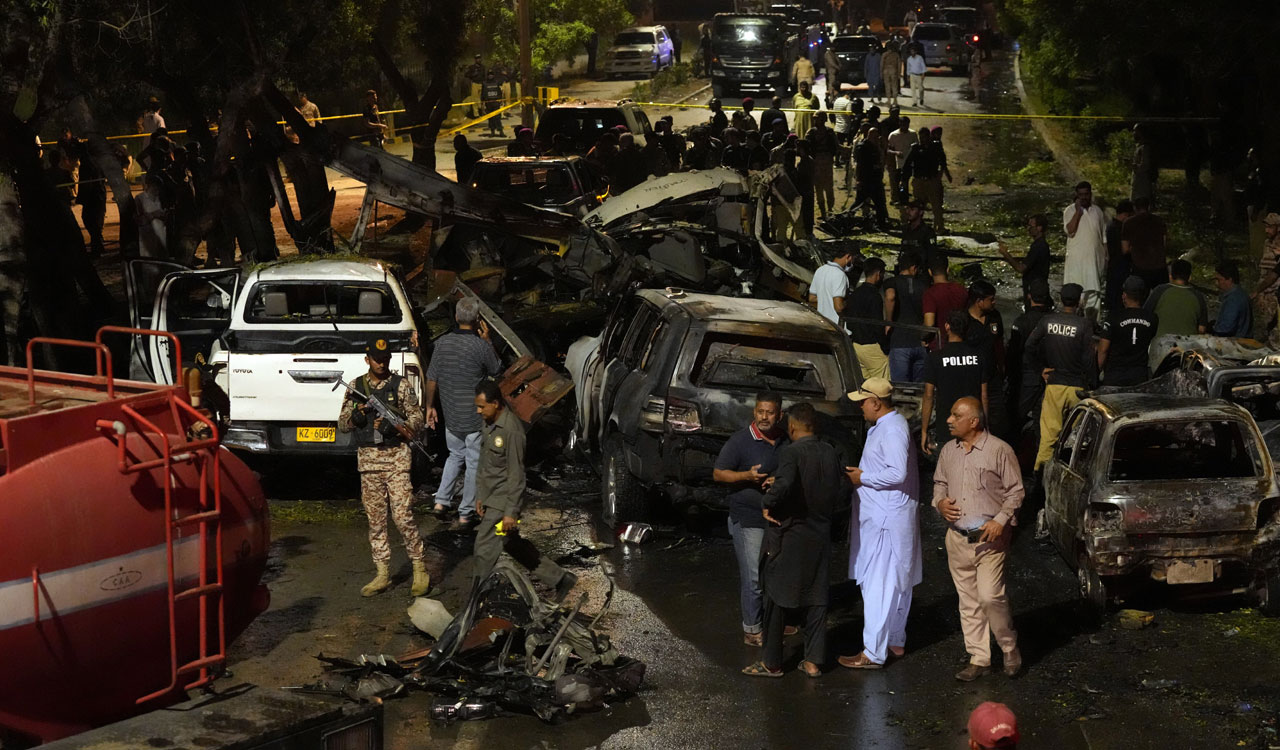Opinion: Beijing’s double standards
Will China’s closeness with central Asian countries, particularly Afghanistan, to check Uyghur ‘violence’ help?

By Aaron Nair, Dr Karamala Areesh Kumar, Urvi Begum
The Chinese government has been accused of genocide and human rights violations against the Uyghur Muslims. They are Turkic-speaking people primarily living in the Xinjiang region in the northwestern part of China. After the region became autonomous in the 1950s, there was a sudden influx of Han people (an ethnic Chinese group), reportedly directed by the government, into territories populated by the Uyghurs. This led to the dilution of minorities and thereby ensured that the Han people constituted two-fifths of the total population by the 20th century. This was one of the primary reasons for the dispute between the two communities, as the Uyghurs now faced economic and social repression, leading to wide-scale protests and dissent from their side.
In a violent incident dating back to July 2009, over 200 Han people were killed, and 1,700 injured, with attackers ranging from knife wielders to suicide bombers. The attack was perceived to be executed by the East Turkestan Islamic Movement, a militant group mainly comprising disgruntled Uyghurs who had taken shelter in Afghanistan after escaping persecution.
Crackdown on Community
The Chinese government since then has ordered a wide-scale crackdown on the community and concealed intentions of oppression and torture through alleged exaggerated accounts of threat and violence. The region was under high surveillance and mass detentions took place in high-security prisons, with strict discipline and punishments established as norms. The detention camps soon became a place for human rights violations, sexual abuses, and physical and mental torture, with many women survivors narrating incidents of mass rape and torment at the hand of officials. The government faced backlash from many other countries, and international organisations like the United Nations called upon the authorities to end the detention camps through their human rights body. However, China outrightly denied the existence of such camps.
Relations with Afghanistan
In this situation, China looks to avoid chances of further threat or militancy from the Uyghurs by ensuring the isolation of their cause on the world stage. This will include creating a united front against terrorism and further ties among Central Asian countries, particularly Afghanistan. China’s relations with Afghanistan involve three phases — a distance from affairs during the Cold War period, concern over the threats from Uyghur Muslims in the 2000s and an attempt to increase engagement after the US called back their troops from Afghan regions in the 2020s. China has faced a heightening security dilemma since the formation of ETIM, the Turkestan Islamic Party, and other organisations fighting for the Uyghur cause having their bases in Afghanistan, where they are provided asylum, especially after the Taliban takeover.
The operations of these units are based on the Xinjiang border along Pakistan, Afghanistan and eight other countries, making it a geo-strategical region that links China to Central Asia and Europe. Thus, they sought to remove the threat by intervention and diplomatic procedures. First, it will better dialogue with Afghanistan with the help of Pakistan, and second, it will attempt regional cooperation through the Shanghai Five, constituting five Central Asian countries and Russia. China, during the first Taliban takeover, had expressed their distrust of the government due to their radical means and promotion of militancy, further opposing the continuation of bilateral ties citing these very concerns.
However, after the US called back its troops and the mounting threat of militancy and separatism from terror organisations persists, China has decided to normalise ties with Afghanistan. China began by criticising the West over its policies towards the Taliban and by even pressuring them to give up the overseas assets of Afghanistan back to its rightful owners.
China has faced security dilemma since the formation of Turkestan Islamic Party and other organisations fighting for the Uyghur cause having their bases in Afghanistan
The double standards of Beijing are very evident in its policy decisions as they are cracking down on the Uyghur Muslims within their borders by quoting radicalisation, extremism and outbursts of violence, all attributes being commonplace in Taliban-ruled Afghanistan. This ‘break with the past’ action by China can be described as an understanding of the menace they will have to face as radical Uyghur Muslims joined organisations like Al-Qaeda during the earlier Taliban government’s tenure.
Aid Route
Even from an economic point of view, China has made enormous gains with the return of stability in the Xinjiang region as it borders eight countries. This is beneficial for the Belt-Road Initiative, which will also involve Afghanistan. In 2021, after a meeting of the Foreign Affairs Ministry of China and Afghanistan in Tehran, the Taliban promised not to allow any organisation to set up camps that would deliberately or inadvertently harm China.
In return, China has promised to take up the role of a facilitator of inclusive politics within Afghanistan only after respecting the status quo of the Taliban while urging them to seriously take up the reconstruction of politics. Greater humanitarian aid and assistance is another policy China is looking forward to working on with the Taliban. Economic aid in 2014-17 amounted to $326.7 million, a staggering rise compared to the aid during 2001-13.
After the Taliban takeover in 2021, China announced aid worth $31 million and even donated 3 million doses of Covid vaccines to help them battle the crisis. They have also begun to emphasise the rights of women, children and education in their dialogue with Afghanistan, thus traversing through a realm wherein the West often criticises them.
Even with all the recent developments, China has understood to take Afghanistan’s promises of elimination of separatists and terrorists with suspicion and will still be wary of the outcomes of further radicalisation outside and within the borders. The Taliban, being an Islamic fundamentalist government, will provide no respite to China as they may discreetly still support or fund the cause of the Uyghur Muslims. The involvement of international organisations like the UN and the regional cooperational efforts of the Shanghai Five may help China ease the threats.
However, a better way forward to end threats of militancy and terrorism would be first to free the Uyghur Muslims in the region and provide fundamental civil rights. The end of the detention camps will also be a precedent for better regional stability.

(Aaron Nair is Research Scholar and Dr Karamala Areesh Kumar is Head, Department of International Relations, Peace and Public Policy, St Joseph’s University, Bengaluru. Urvi Begum is pursuing Master’s in Political Science at the University)
Related News
-
Haiti gang attack on journalists covering hospital reopening leaves 2 dead, several wounded
36 mins ago -
21 dead as Mozambique erupts in violence after election court ruling
54 mins ago -
Cartoon Today on December 25, 2024
8 hours ago -
Sandhya Theatre stampede case: Allu Arjun questioned for 3 hours by Chikkadpallly police
9 hours ago -
Telangana: TRSMA pitches for 15% school fee hike and Right to Fee Collection Act
9 hours ago -
Former Home Secretary Ajay Kumar Bhalla appointed Manipur Governor, Kerala Governor shifted to Bihar
9 hours ago -
Hyderabad: Organs of 74-year-old man donated as part of Jeevandan
9 hours ago -
Opinion: The China factor in India-Nepal relations
10 hours ago




